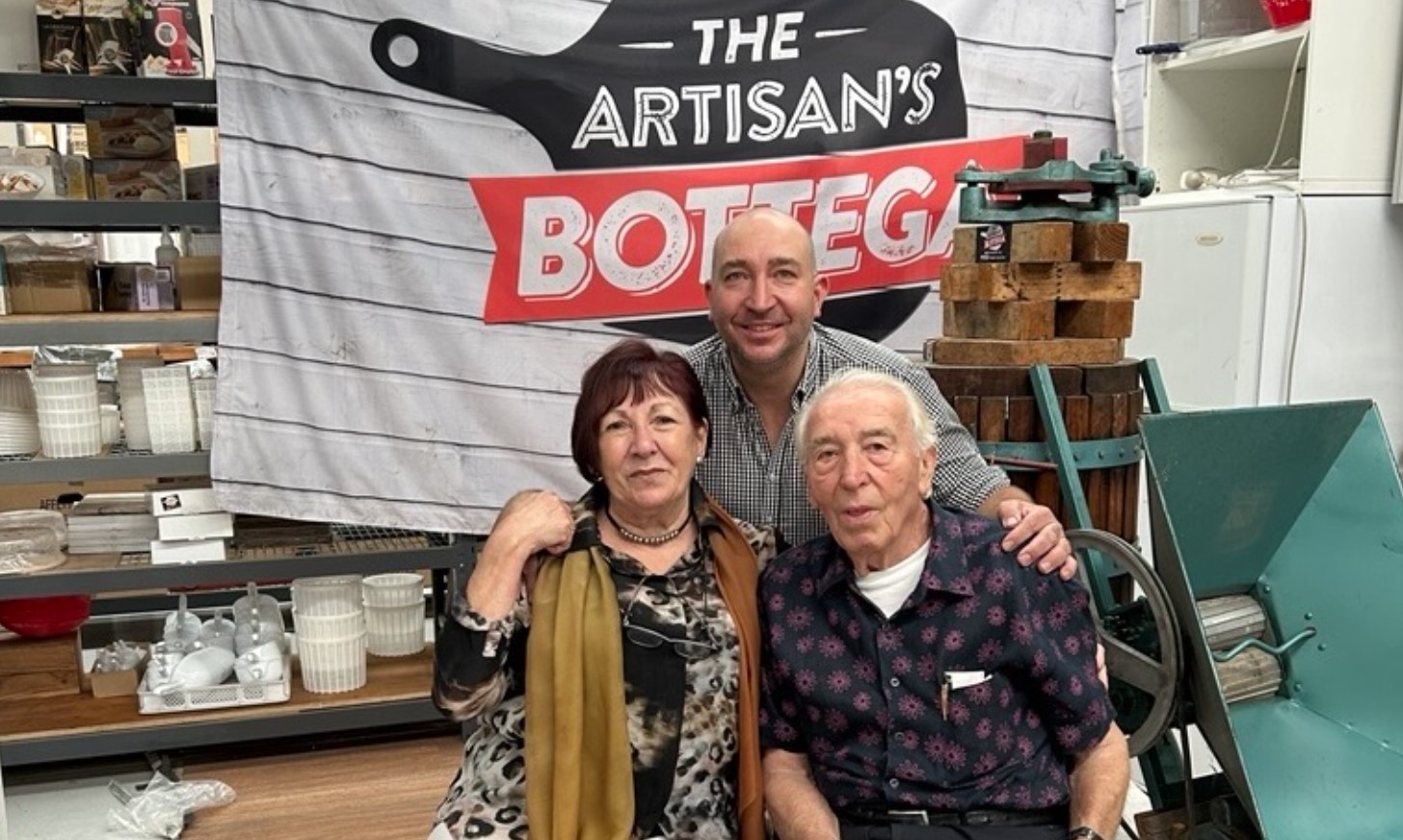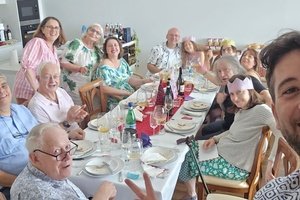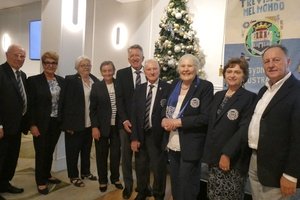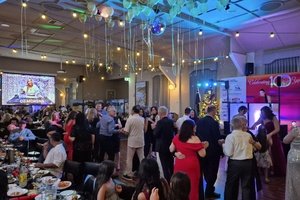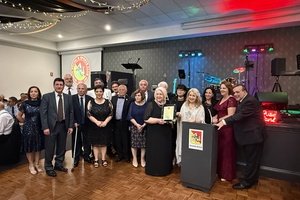Baggio was born in Fanzolo, in the province of Treviso, where he learned the art of working with iron from his father, who crafted the cores of cartwheels, shaped iron hoops for wine barrels and made grape presses.
At 18, he began working with a company in Castelfranco Veneto, dealing with pressing, wool cleaning and spinning. Despite his young age, his skill and keen attention to detail earned him the position of assistant to the shift supervisor.
Baggio soon found himself replacing his superior and managing a large team. Despite his professionalism, his employers - wary of his youth - denied him a raise.
So, during a lunch break, an angry Baggio walked into a travel agency.
“They were advertising Australia, the land of kangaroos, and I thought, ‘Why not?’,” he recalled.
In less than two months, Baggio set off for Australia and never looked back.
“I arrived on March 20, 1960, and found a Tuscan family - the Tonellis - who adopted me like a second son,” he said.
“They introduced me to Melbourne, and within three days I had a job at Massey Ferguson. I had never seen so much money!”
Baggio confesses that during his early years he was consumed with work, driven by the desire to build a new life. As a result, many of the letters his mother sent went unanswered.
“I made it up to her over the years, until I was finally able to bring her here,” he shared.
Not knowing English, Baggio attended an evening language school.
“Every day I got up at four in the morning, was at the factory by six, came home to eat and then went off to school,” he recalled.
It was an intense routine, and sometimes Baggio would fall asleep at his desk.
He later worked at Holden, where he became friends with the brothers of Celestina, his future wife.
In 1964, Baggio and Celestina bought their first home. A year later, Baggio opened his garage to the neighbourhood, where he would sell parts for machines like those used for making tomato sauce or pressing grapes.
“I had bought a trailer and twice a week went around to workshops asking for aluminium scraps they no longer needed,” he explained.
“I would melt them down and make the parts my clients asked for. At that time, there was only one Calabrian man, Tallarida, doing similar work.”
Baggio was intuitive and knew it was the moment to “strike while the iron was hot”, so he and his wife founded the manufacturing company LBC Engineering in Preston.
A few years later came La Casa del Torchio in North Melbourne, followed in 1984 by the Cellar Plus store, also in North Melbourne.
The Baggios worked tirelessly to serve the Italian community, which, rich in culinary tradition, was eager to keep making tomato sauce, salami, vinegar, wine and olive oil at home.
“It was a time when these Italian products couldn’t be found in Australia, and Baggio often travelled to Italy and Germany for trade fairs, also to import equipment,” Celestina recalled.
Soon, the Baggio name became known in the Greek, Polish and Croatian communities of Australia as well.
Their sons, Paul and Stephen, would join their father on business trips and were exposed not only to the family business but also to Italian culture.
“Baggio always built and imported parts and machines; I took care of sales and the commercial side,” said Celestina, who studied oenology.
“I also helped customers who made wine at home, analysing samples and suggesting all the necessary corrections like adjusting acidity or alcohol, so they could achieve a well-balanced product.
“We were the first to sponsor the Eltham & District Winemakers’ Guild (still considered the largest group of amateur winemakers in Australia),” she revealed.
“Unfortunately, due to my diabetes, I had to give up wine analysis and tastings,” Celestina added.
In 2005, the business expanded with Paul and Stephen - now integral parts of the company - through the opening of a new Cellar Plus store in Epping. Five years later, Baggio officially retired, handing the reins to his sons.
Paul eventually separated from the family business, while Stephen continued the North Melbourne operations, eventually leading to a rebrand under the current name Artisan’s Bottega.
“We’ve always been committed to serving all artisans,” said Stephen, as Baggio and Celestina nod with pride.
“Whether immigrants, small producers, third-generation Italian Australians reviving their grandparents’ traditions or lovers of Italian food culture.”


